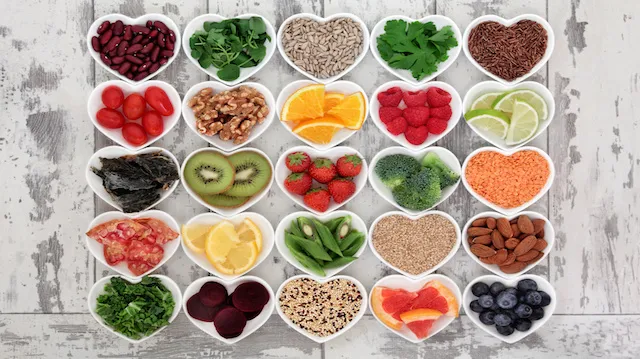The thyroid is a small butterfly-shaped gland at the front of the neck, and it is one of the most important organs in the body. The thyroid gland produces hormones, which control some of our most significant bodily functions, including weight management, energy utilization, metabolism and sleeping patterns. It is essential in protein synthesis, temperature regulation and cell oxygen consumption.
Due to the important role it plays, a healthy thyroid is often synonymous with a healthy body. Unfortunately, it is also one of the first organs to show signs of strain when your lifestyle is less than optimal. Thyroid disease affects an estimated 20 million people in the United States, with the two conditions of hypothyroidism and hyperthyroidism comprising the key manifestations of thyroid disease.
Hypothyroidism, also known as underactive thyroid, occurs when the thyroid gland produces insufficient amounts of certain important hormones. It upsets the normal hormone balance in your body and over time can cause a number of serious health problems, including obesity, joint pain, heart disease and infertility. It is more common in women over the age of 60, but anyone is at risk of developing hypothyroidism.
Hyperthyroidism is essentially the exact opposite of the first condition, with your thyroid going into “hyperdrive” and producing an excess of the hormone thyroxine. This condition can significantly elevate your body’s metabolism, causing drastic weight loss, rapid or irregular heartbeat, sweating, anxiety and irritability.
Achieving a balance where your thyroid operates under healthy conditions and produces just the right amounts of hormones to maintain proper function is an absolute must. A typical Western-medicine approach to resolving this problem is to take prescription anti- or pro-thyroid medications or radioactive iodine to regulate the production of hormones, or more drastic measures such as surgically removing part or all of the thyroid gland. These approaches do not address the factors causing an erratic thyroid in the first place, and they have the potential to be very dangerous.
So what are some natural methods that help balance your thyroid and achieve optimum health?
Get the right nutrients
The thyroid gland needs specific vitamins and minerals to function as it should. Iodine is perhaps the most important of these, with iodine providing the essential building blocks for production of the hormones thyroxine and triiodothyronine. Iodine-rich foods include kelp, arame, cranberries, yogurt, strawberries, raw cheese and potatoes.
Selenium is another nutrient vital to the health of our thyroid. Selenium-containing enzymes help to protect the thyroid gland during times of stress, promoting detoxification of oxidative and chemical stress. Selenium also helps to regulate hormone synthesis and metabolic processes, ensuring your tissues, blood and organs all contain the right amount of thyroid hormones. Foods high in selenium include brazil nuts, oysters, tuna, sunflower seeds, pork, beef and lamb.

Iron and copper are also important for proper thyroid function. A deficiency in iron can prevent the production of vital thyroid hormones, which can lead to the development of hypothyroidism. Copper is needed to produce the thyroid-stimulating hormone and maintain thyroxine production, which is instrumental in regulating cholesterol and hence preventing development of heart disease. Iron-rich foods include red meat, poultry, pork, seafood, beans and dark, leafy greens. Food with high concentrations of copper include liver, seafood, sesame seeds and dark chocolate.
It’s very important to remember that the perfect amounts of these nutrients is key to balancing your thyroid function. Too many or too little of each can lead to development of hyperthyroidism or hypothyroidism. For this reason, it’s worth paying a visit to your doctor or health practitioner to conduct a full thyroid test panel in order to determine what your optimum intake amounts should be.
Here are six more foods that can support your thyroid.
Avoid gluten
Gluten is a compound that makes up most of the protein found in wheat, rye and barley. Gluten causes gut inflammation in the majority of the population and can trigger an autoimmune response in many people when the body develops antibodies to fight the intrusion of “alien” proteins in the bloodstream. Gluten contains a protein called gliadin that is very similar to certain proteins naturally found in the tissues of organs, particularly the thyroid. Gliadin can thus cause your antibodies to unknowingly attack your thyroid and result in development of hypothyroidism.
Avoiding wheat, barley, rye and any foods and medications (consult your physician beforehand) containing these grains for at least a month should remove gluten from your system and help your thyroid regain its natural function. Taking this one step further and avoiding all grains, which contain other harmful proteins called anti-nutrients, will greatly improve your overall well-being and encourage a healthy thyroid.
Avoid BPA
Recent research indicates that exposure to bisphenol A (BPA), a chemical found in many household plastics, can alter thyroid hormone production and lead to or aggravate thyroid disease. One study found that individuals with higher concentrations of BPA in their urine tended to have thyroid hormone imbalances, with abnormal levels of thyroglobulin in their bloodstreams. It was thought that BPA may interfere with the thyroid gland, causing it to behave erratically and produce either too little or too many hormones, thereby leading the way to thyroid disease.
Your best way to avoid BPA is to stop your food and drink from coming into contact with plastic. Unless otherwise stated, most food plastics contain BPA, which can easily leach into your food and hence enter your bloodstream. Greatly reduce your BPA intake by using only stainless steel, iron, wood, glass and ceramic utensils, containers, dishes and bottles.
Not sure whether your thyroid is functioning properly? Here are five signs to look out for.
—Liivi Hess
Liivi is an Integrative Nutrition Health Coach and is training to become a doula. She inspires women to find peace and personal power by taking control of health and fertility naturally. Liivi‘s passion is ancestral nutrition and primal lifestyle design. She and her partner Will live between Toronto, Canada and Queenstown, New Zealand.
Sources:
http://www.ncbi.nlm.nih.gov/pubmed/11396708
http://europepmc.org/abstract/med/2498473
http://online.liebertpub.com/doi/abs/10.1089/thy.2000.10.321?journalCode=thy
http://press.endocrine.org/doi/abs/10.1210/jcem.87.4.8421
http://www.sciencedirect.com/science/article/pii/S0022347600630421

